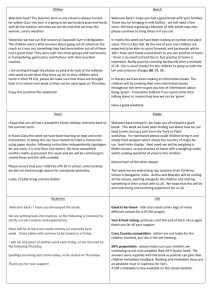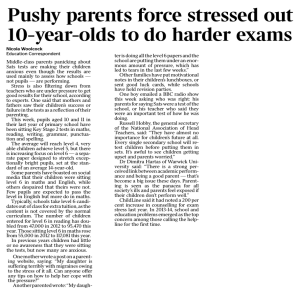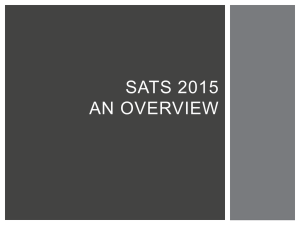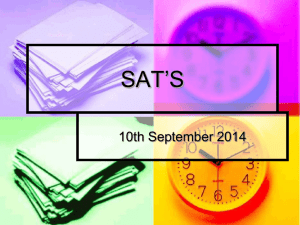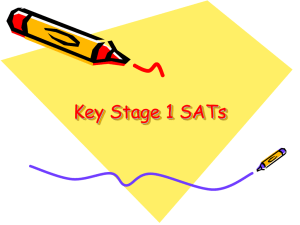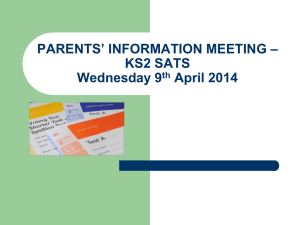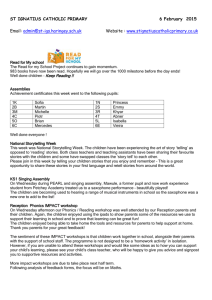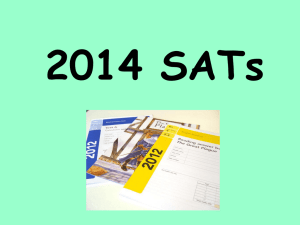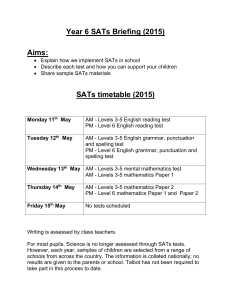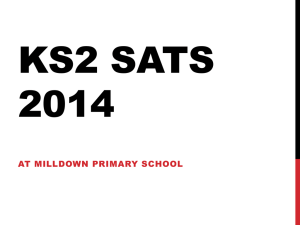All about Key Stage 2 SATs - Malcolm Sargent Primary School
advertisement
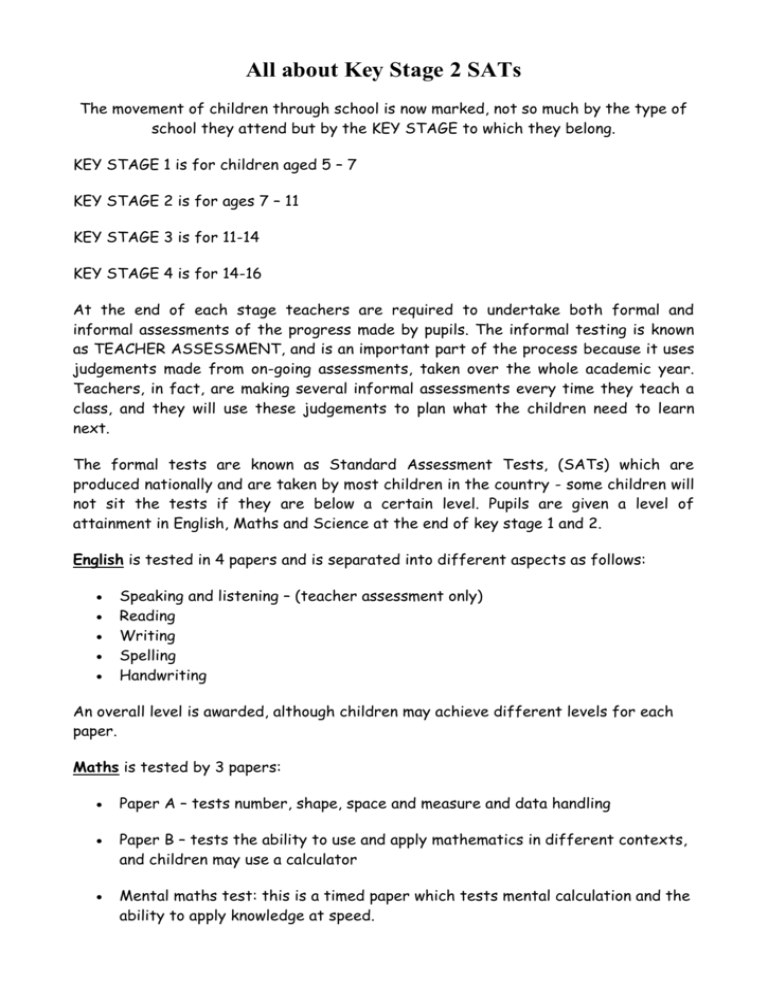
All about Key Stage 2 SATs The movement of children through school is now marked, not so much by the type of school they attend but by the KEY STAGE to which they belong. KEY STAGE 1 is for children aged 5 – 7 KEY STAGE 2 is for ages 7 – 11 KEY STAGE 3 is for 11-14 KEY STAGE 4 is for 14-16 At the end of each stage teachers are required to undertake both formal and informal assessments of the progress made by pupils. The informal testing is known as TEACHER ASSESSMENT, and is an important part of the process because it uses judgements made from on-going assessments, taken over the whole academic year. Teachers, in fact, are making several informal assessments every time they teach a class, and they will use these judgements to plan what the children need to learn next. The formal tests are known as Standard Assessment Tests, (SATs) which are produced nationally and are taken by most children in the country - some children will not sit the tests if they are below a certain level. Pupils are given a level of attainment in English, Maths and Science at the end of key stage 1 and 2. English is tested in 4 papers and is separated into different aspects as follows: Speaking and listening – (teacher assessment only) Reading Writing Spelling Handwriting An overall level is awarded, although children may achieve different levels for each paper. Maths is tested by 3 papers: Paper A – tests number, shape, space and measure and data handling Paper B – tests the ability to use and apply mathematics in different contexts, and children may use a calculator Mental maths test: this is a timed paper which tests mental calculation and the ability to apply knowledge at speed. Timetable The SATs take place in May each year. The timetable for the tests changes from year to year but they must be administered according to the national plans, unless special circumstances prevail. Marking All of the test papers are marked externally. They are sent off to a named marker and we receive the marked papers and master list before the end of term. We do not have the date for this, and appreciate that this is an anxious time for both parents and children. We endeavour to process the information as quickly as possible and get it out to you in written form as part of the annual report. If we spot a discrepancy in the marking we can resubmit it for re-marking by another examiner, but this delays the process. Equipment All of the SATs take place in the children's classroom, which is set up to allow enough space for the children to work independently. The school provides all the equipment necessary for the children to take the tests. Children who use inhalers should take them into the tests with them. (An adjudicator can accompany a child to use the toilet in an emergency, but it is discouraged.) Reporting Results to parents Once the results have been received from all three examiners (English and Maths), the school is required to complete a number of forms before the results are given to parents. You will receive the following results: An individual copy of your child’s results A copy of the results for the school A copy of the national results for comparison – note however that these are the previous year's results. What do the national curriculum levels mean? Children in year 6 are expected to achieve a level 4 in all areas. If a child is awarded a level 3 it means they have not reached the level of the average 11 year old. If they achieve a level 5 it means they are working at above average for their age group. Some pupils, those with Special Educational Needs, may find it hard to achieve a level 4. For these pupils, a level 3 may be a mark of achievement, and is celebrated as such. If we assess any pupil to be working lower than level 3 we can decide to disapply them from the tests and will report a teacher assessment level only. How does the school help in preparing the children? By ensuring the children are taught the entire curriculum that may be tested in the SATs. By practising key skills and sitting past test papers which will prepare the children for the process of the tests. By giving parents the information they need to help their children By using revision materials – booklets (CGP), homework, BBC Revisewise programmes and website www.bbc.co.uk/schools/revisewise www.cgpbooks.co.uk http://www.woodlands-junior.kent.sch.uk/revision/index.html Booster Lessons and intervention Super skills literacy lesson and mental maths session. How can you help your child? Make sure you know what homework has been set and that it is done thoroughly Don’t panic – don’t transfer your anxieties to your child Make sure they have all of the things they need for school Help with revision – reading, mental maths, writing, comprehension Purchasing revision materials/CD ROMs Early nights and a ‘normal’ routine. A proper breakfast A banana for break time! Should you have any further questions regarding the Key Stage 2 SATs, or any other aspect of your child’s education, please do not hesitate to speak to their class teacher. Thank you for taking the time to attend this meeting. We hope it has been useful.

